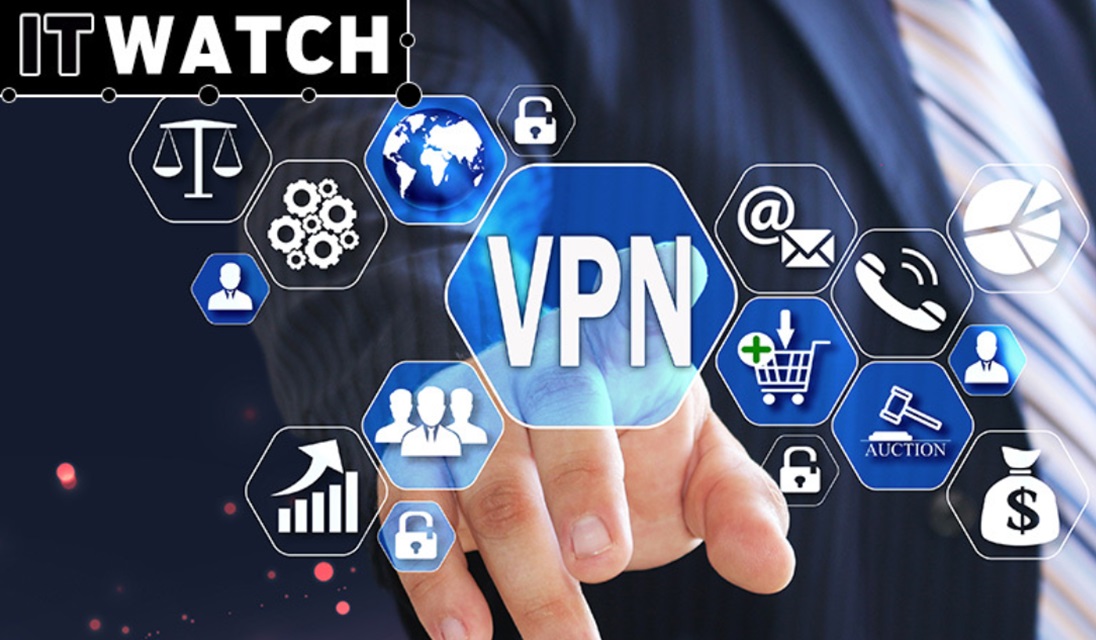A virtual private network (VPN) establishes a private network connection between you and a VPN server, encrypting all data transmitted to ensure privacy and protection from unauthorized access. Using a VPN is vital for preserving your online activities’ confidentiality and enhancing your data security. Experts strongly advise utilizing a VPN as it makes it arduous for hackers and cybercriminals to intercept and access your valuable information.
Table of Contents
Benefits Of Using A VPN For Business
#1 Improved Security
Using a VPN can enhance your online privacy and safety by safeguarding sensitive information. It keeps your IP address, location, passwords, and data secure from potential hackers. By creating a secure connection between your device and the network or other resources you log into, a VPN adds an extra layer of safety and security to data transfers between web apps like Dropbox or Office 365. It’s important to note that a VPN should not be relied upon as a standalone security measure. Unlike malware that can attack your operating system when downloaded onto your device, a VPN solely protects your activity across websites.
#2 Continuity
In times of natural disasters, cyberattacks, or power outages, businesses must ensure smooth operations. That’s where VPNs come in handy – they are an essential tool that allows you to keep your work going even when your physical office is unavailable.
If you are looking for smart cybersecurity tips for small businesses, start with a VPN. Nearly half of the small businesses have experienced a breach that disrupted their business and resulted in financial consequences. Why should you take such risks if you have a zero-log VPN in your arsenal? With a no-log VPN, you can protect your and your clients’ data. Moreover, all VPN apps from VeePN have 256-bit encryption, which is uncrackable. There is even a free trial mode available.
#3 Connect Remote Employees
Using a VPN isn’t just about protecting your employees and company’s data, but also ensuring safe access to your company’s intranet for remote work. It’s an essential requirement for companies with multiple offices or remote employees who frequently travel and utilize public Wi-Fi. Previously, hardware VPNs were a reliable solution, but nowadays, businesses seek more versatile and scalable options like software VPNs. You can consider VPN software which provides your employees with a dedicated IP address, allowing secure data protection and easy access to your company’s digital resources from anywhere in the world.
#4 Safe Browsing For Your Customers
If you operate a coffee shop or any other business where you provide your clients with free Wi-Fi, it’s crucial to secure the network. Otherwise, your clients might encounter the dangers of public Wi-Fi and expose their data to hackers. Ensure that you configure your router in a way that prevents hackers from exploiting it and attempting to access your customers’ devices. Consider setting up a VPN on your router (or purchasing a VPN-enabled router) to add an extra layer of security for your customers. This will surely earn the trust and appreciation of your clients.
#5 Improves Efficiency
You can leverage VPNs to enhance productivity and efficiency in your business. A VPN provides access to resources from any location, eliminating geographical barriers and enabling employees to work seamlessly across regions and time zones. Collaborating with colleagues becomes effortless.
For instance, as a US-based business owner, you can use a VPN to access European resources, saving costly travel expenses. This approach not only saves time and money but also boosts teamwork and communication within the company.
#6 Threat Protection
You should consider including Threat Protection in your business VPN to prevent data breaches caused by malware. Malicious software, often spread through phishing attacks, can lead to significant financial loss for corporations like Acer and Garmin. Criminals use fraudulent emails to send infected links to employees. However, with a business VPN, you can benefit from features such as centralized billing, dedicated IP addresses, 24/7 support, and the ability to block access to malicious websites and stop intrusive pop-up ads through the ThreatBlock feature.
#7 Protection Across Public Wi-Fi

You should be cautious when using public WiFi hotspots as they are not as secure as your home or office broadband. Cybercriminals can easily intercept and view data transmitted across these networks. Even if you have a password-guarded connection, other users on the network can still see your online activities. A hacker may obtain the same café password as you and gain access to the network. To enhance security, consider using a VPN to encrypt your online activity.
#8 Protect Multiple Devices
Nowadays, we tend to rely on smartphones the most for internet access, especially when we’re on the move. Therefore, it’s worth considering using a VPN not only on our laptops or PCs but also on our phones. Most paid VPNs (and free VPNs should be avoided) offer multiple simultaneous connections, allowing us to safeguard all our devices, including computers, smartphones, tablets, smart TVs, and gaming consoles. With a VPN, we can ensure the protection of all our devices on the network without the need to worry about remembering to connect to it.
Conclusion
VPN is a key element of a cybersecurity strategy and the arguments listed above should be enough to support this statement. Don’t forget about the other essential business security tips. However, you should think about security more broadly, including thinking about financial security.
Diversification is one of the key elements of financial security. Investments in technology, especially legal tech investments, are now gaining popularity and providing good returns. Even better if they are related to your business. These tech investments will pay off for you and will not allow your business to stand idle.



